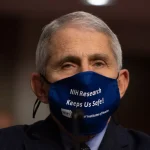If you’re a Democrat who supports “Medicare for All,” pick your poison. You can ruin your political career and immolate your party by imposing a ruinous new sales tax, a gargantuan income tax hike or a surtax on corporate income that would wreck thousands of businesses.
This is the cost of bold plans.
Supporters of Medicare for All, the huge, single-payer government health plan backed by Bernie Sanders, Elizabeth Warren and several other Democratic presidential candidates, say it’s time to think big and move to a health plan that covers everyone. Getting there is a bit tricky, however. A variety of analyses estimate that Medicare for All would require at least $3 trillion in new spending. That’s about as much tax revenue as the government brings in now. So if paid for through new taxes, federal taxation would have to roughly double.
The Committee for a Responsible Federal Budget (CRFB) has done voters a favor by spelling out what kinds of new taxes it would take to come up with that much money. Warren justifies many of her programs by saying all it would take is “two cents” from the wealthy. That’s a reference to her 2% wealth tax on ultra-millionaires. But Medicare for All would be so expensive that if you taxed top earners at 100%—that’s right, if you took all the income of couples earning more than $408,000 per year—you’d still fall far short. And everybody getting taxed at 100% would obviously stop working.
Christian university rebranding DEI to evade Trump order, enroll illegals, Tennessee rep says
Mike Huckabee Threatens to Declare Israel ‘No Longer Welcoming’ to Christian Organizations After ‘Shocking’ Policy Change
Former Voice of America Staffer Charged Over Alleged Death Threats Against Marjorie Taylor Greene
NIH still blaming FOIA delays on the pandemic
New York settles Andrew Cuomo sexual harassment case for nearly $500,000
Americans detained in Venezuela freed and returning home after prisoner exchange
Trump sues Wall Street Journal for libel after Epstein birthday letter story
Trump vows to make US ‘crypto capital of the planet,’ signs GENIUS Act into law
Illegal pleads guilty to impregnating his own daughter at blue state migrant shelter
Watch: Rare ‘Firenado’ Captured on Video as it Cuts a Swath of Destruction
FBI captures final illegal immigrant inmate who escaped ICE facility in New Jersey
Illegal Alien Claimed She Was Illegally Kidnapped by ICE – Then the Surveillance Footage Was Located
Germany admits Europeans were ‘free riders’ on defense and national security
Border Patrol Hits Jackpot in Raid on California Home Depot
Missing mom’s convicted killer claims boyfriend tainted his trial
Okay, that won’t do it. So what will? CRFB outlined a variety of options. A 42% national sales tax (known as a valued-added tax) would generate about $3 trillion in revenue. But it would destroy the consumer spending that’s the backbone of the U.S. economy. A tax of that magnitude would be like 42% inflation, wrecking consumer budgets and the many companies that depend on them, from Walmart and Amazon to your local car dealer.

Other options include a 32% payroll tax split between employers and workers or a 25% income surtax on everybody. Or, the government could cut 80% of spending on everything but health care, which would include highways, airports and the Pentagon. Or here’s a good one: Just borrow the money and quadruple Washington’s annual deficits.
The best idea might be charging every enrollee in the new program $7,500 per year, so they’d be paying directly for the coverage they’re getting. Some people pay more than that now for health care, by purchasing insurance outright or sacrificing pay raises in exchange for employer coverage. It would still be a nifty trick to propose that to voters.
Christian university rebranding DEI to evade Trump order, enroll illegals, Tennessee rep says
Mike Huckabee Threatens to Declare Israel ‘No Longer Welcoming’ to Christian Organizations After ‘Shocking’ Policy Change
Former Voice of America Staffer Charged Over Alleged Death Threats Against Marjorie Taylor Greene
NIH still blaming FOIA delays on the pandemic
New York settles Andrew Cuomo sexual harassment case for nearly $500,000
Americans detained in Venezuela freed and returning home after prisoner exchange
Trump sues Wall Street Journal for libel after Epstein birthday letter story
Trump vows to make US ‘crypto capital of the planet,’ signs GENIUS Act into law
Illegal pleads guilty to impregnating his own daughter at blue state migrant shelter
Watch: Rare ‘Firenado’ Captured on Video as it Cuts a Swath of Destruction
FBI captures final illegal immigrant inmate who escaped ICE facility in New Jersey
Illegal Alien Claimed She Was Illegally Kidnapped by ICE – Then the Surveillance Footage Was Located
Germany admits Europeans were ‘free riders’ on defense and national security
Border Patrol Hits Jackpot in Raid on California Home Depot
Missing mom’s convicted killer claims boyfriend tainted his trial
The upside to these impossibly draconian scenarios is that nobody would pay anything for health care, except in the $7,500 example. And it’s possible that Medicare for All would cover health care for more people at a lower total cost than we spend now, meaning the average cost per person would go down. The problem is transitioning from what we have now to whatever Medicare for all would be. And it’s a giant problem, like crossing the Mississippi River without a bridge or a boat. The other side might look great but you’ll die before you get there.
Warren, Sanders and others tout the virtues of this magical health care program without explaining what it would cost. Sanders has at least suggested some possible ways to pay for it, including premiums paid by enrollees, a wealth tax on millionaires and income tax rates as high as 52%. Warren has been cagier, saying only that under her plan “costs” would go down for middle-class families. Under pressure to explain, Warren has pledged to come up with a financing plan soon. Now, maybe she doesn’t have to.
Story cited here.
























